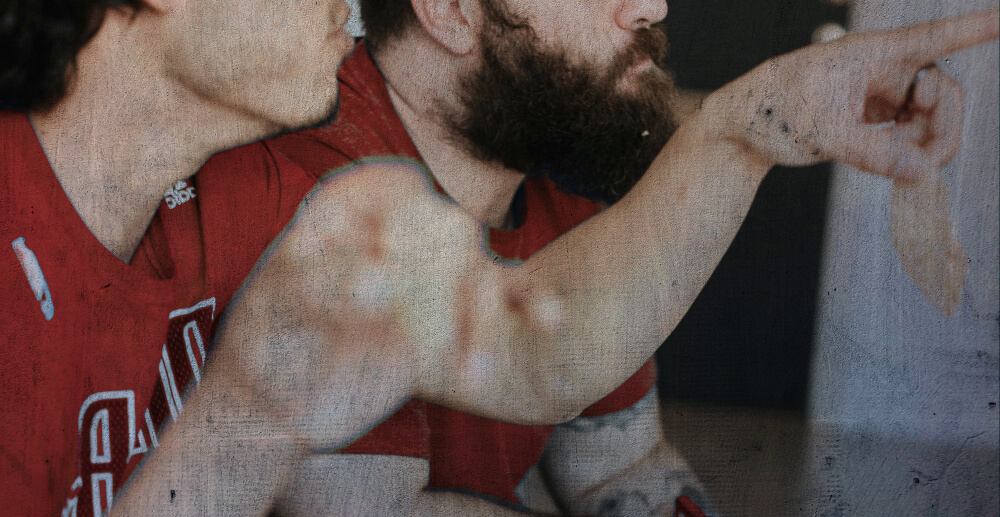Are your friends supporting your recovery? Or undermining it?
That headline sounds a little dramatic, but friends truly can play a significant role in your recovery from substance use disorder. The challenge for people in recovery is figuring out if that role is supportive … or could potentially hinder your sobriety. In this blog, we’ll explore how to find and maintain a supportive network of friends and how to set boundaries with those who have a negative influence.
Green flags for supportive friends
Supportive friends can make such a difference in your recovery. They provide emotional support and encouragement that helps you through both the best and worst versions of yourself. In early recovery, however, it can be challenging to know who to rely on, especially if your friends aren’t in recovery.
“Green flags” are positive, encouraging signs. The best way to discern how supportive your friends are is to look for some green flags, which may include:
- They remind you why you chose recovery and how important it is in your life. For example, they may remind you how much better your life is since you got sober.
- Supportive friends make time to listen and acknowledge your feelings.
- A good friend may be able to reflect some warning signs that you might be slipping back into old patterns.
- They understand your triggers and try to ensure they provide a supportive environment for you. For example, they might reduce the triggers they can, or warn you about ones that can’t be eliminated.
- Recovery friends can share their own experiences to provide reassurance and empathize with situations you’re going through.
- Friends might offer to take you to a meeting or any other recovery-related activity.
- Supportive friends show flexibility and adapt to make space for your recovery. For example, if they have a party or social event, they may make it alcohol-free or ensure you have non-alcoholic drinking options.
- They might provide a positive influence by modeling healthy habits and behaviors, such as regular exercise, nutritious eating, attending therapy, and working on their issues.
- Good friends may be honest even when it’s hard. This could include telling you if they are concerned about a relationship that is hurting you and reminding you that you are worthy of love, respect, and care.
- They educate themselves on substance use disorders and don’t stigmatize people with mental health conditions.
- Healthy relationships honor your boundaries. They don’t encourage you to go to bars or pressure you to use. They actively support your health goals.
Signs to look out for
While green flags are encouraging, red flags are warning signs. They don’t necessarily mean that it’s a bad friendship, but they can be signs that something is off. Some red flags that your friends may not be supportive of your recovery are:
- Dismissing your calls for support or acting like your challenges are no big deal.
- Avoiding your attempts to connect with them.
- They are not mindful of the fact that you don’t drink and still invite you to bars or social events that involve people drinking or taking drugs.
- Making fun of your sobriety, or referring to it as a “health kick,” fad, or choice rather than something significant in your life.
- Encouraging you to skip meetings, provider appointments, or other recovery activities to do things they want instead.
- Inviting you to events they know might trigger you.
- Pushing you to drink or take drugs (even if they say it’s just a joke).
- You feel emotionally drained after being with them.
- They disrespect your boundaries.
- Inconsistent support. You can’t rely on them.
- The things they do don’t fit with your recovery lifestyle (like gossiping, partying, and drinking a lot).
- They play victim when you prioritize your recovery over them.
- People who challenge your pathway of recovery because it doesn’t align with theirs. This could be saying that the things you do for your recovery don’t count or aren’t “really sober.”
How to set boundaries to protect your recovery
Recovery is hard enough without feeling that your friends are not being supportive. You deserve the people in your life who value what’s important to you. This means that sometimes we have to set boundaries with friends to protect our recovery. By setting and maintaining consistent boundaries, some friends will gain a deeper understanding of your recovery over time. Others may gradually fade out of your life. Growing away from a friend isn’t a sign of failure! What’s key is staying true to your recovery values.
Tips for setting boundaries include:
- Be clear about what you need: Let’s say a friend asks you to skip your meeting or appointment to go to a game with them, and you feel upset that they don’t realize how vital your meetings are for your recovery. You might express to them, “I feel pressured when you ask me to cancel my meeting to hang out. Meetings are important to me to maintain my recovery.”
- Set your limits: Tell your friend when they cross your boundary. For example, “My provider appointments are non-negotiable. I can’t skip them. However, I can hang out another day.”
- Stay strong: If a friend challenges your boundary (often by trying to make you feel guilty or rude), stay consistent. For example, you might say: “As I said, I am not available at that time,” or, “It’s not okay to keep pressuring me to cancel my plans.”
- Keep going: You will initially feel uncomfortable with setting boundaries, especially if you are accustomed to being persuaded by others. That’s really normal. However, setting and maintaining boundaries becomes a lot easier over time. Soon it will be second nature to tell someone, “No.”




